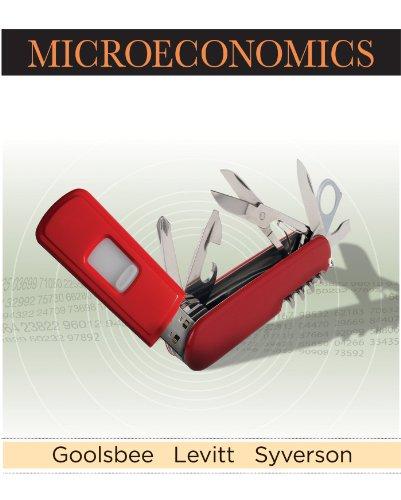16. Bill and Ted like apples and oranges. Bill is always willing to substitute 1 apple for...
Question:
16. Bill and Ted like apples and oranges. Bill is always willing to substitute 1 apple for 1 orange.
Ted is always willing to substitute 1 apple for 2 oranges.
a. Assume that there are 10 apples and 10 oranges to split between Bill and Ted. Construct an appropriately sized Edgeworth box for them.
b. Draw indifference curves for both Bill and Ted in your Edgeworth box. Draw Bill’s indifference curves with thick lines, and Ted’s with thin lines.
c. Demonstrate that any initial allocation of apples and oranges in which Bill and Ted each have some apples and some oranges is Pareto-inefficient.
d. Find a few Pareto-efficient allocations; then shade the consumption contract curve. (Hint:
You showed in part
(c) that both parties having both goods couldn’t be efficient!)
Step by Step Answer:

Microeconomics
ISBN: 9780716759751
1st Edition
Authors: Austan Goolsbee, Steven Levitt, Chad Syverson






